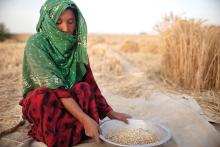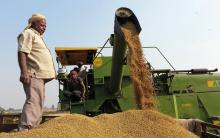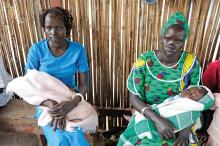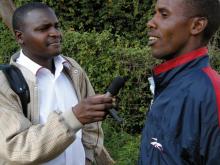Land Library
Welcome to the Land Portal Library. Explore our vast collection of open-access resources (over 74,000) including reports, journal articles, research papers, peer-reviewed publications, legal documents, videos and much more.
/ library resources
Showing items 1 through 9 of 42.The new India’s Right to Food Campaign website was launched in March 2014 at the campaign’s fifth convention.
Less than 2% of the land available worldwide is owned by women. Why is the issue of land so gendered? What approaches and lessons learned can development professionals utilise to address the issue of gender and land?
Livestock are critical to building sustainability in food and agriculture. Current and future livestock sector development needs to produce more, from less, and in ways that benefit all.
Livestock are kept for a wide range of purposes in Africa, and there is considerable diversity in animal husbandry. Among the most important advantages in keeping animals is their contribution to maintaining and even improving soil fertility.
Tropical forage grasses and legumes as key components of sustainable crop-livestock systems in Latin America and the Caribbean have major implications for improving food security, alleviating poverty, restoring degraded lands and mitigating climate change.
The former Soviet Central Asian republics have undergone de-intensification of their livestock sectors, resulting in an increased reliance on natural pastures. Property rights systems are key to the sustainable management of this resource.
Pastoralism – the predominant form of livestock keeping in the Horn of Africa – has always been a source of disputes and tensions in the region.
The growing global demand for animal products also offers poor livestock keepers the opportunity to switch from the subsistence to the market economy.
Initiated by an international packaging company and a local retailer enterprise a project was set up in the Jaffna district in 2013 supported by the GIZ “development partnerships with the private sector” (develoPPP) initiative.








